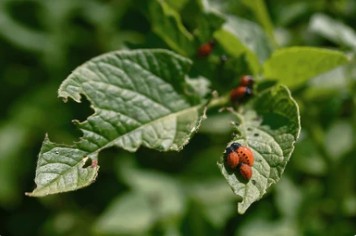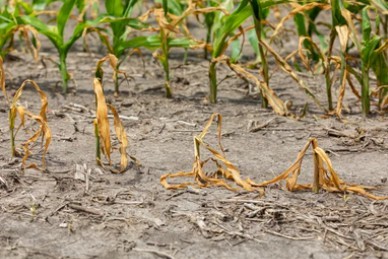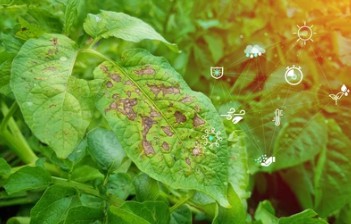Plants grow in complex ecosystems, where some are harmed and killed by stress, while others survive, although their physiological activities are affected to varying degrees. If living in such a stressful environment for a long time, through natural selection, favorable traits are retained and continuously strengthened, and unfavorable traits are continually eliminated. In this way, in the process of long-term evolution and adaptation of plants grown under different environmental conditions will develop the ability to adapt to certain environmental factors; that is, they can take different ways to resist various stress factors. The ability of plants to resist various stress factors is called resistance. Plant resistance genetic engineering is a biotechnology based on the principles of molecular genetics to breed new plant varieties with specific resistance, including plant insect resistance genetic engineering, herbicide resistance genetic engineering, and resistance genetic engineering. Resistance genes are isolated directly from naturally resistant plants or microorganisms, or they can be genes for proteins produced by plants in response to adversity that act as cellular protectors.
Adversities such as drought, cold, heat, salinity, waterlogging, pollution, etc., cause plants to develop different types and degrees of environmental adaptations. Lifeasible provides comprehensive plant resistance identification services to identify plant drought resistance, waterlogging resistance, cold resistance, heat resistance, salt resistance, frost resistance, pollution resistance, disease resistance, insect resistance, and other traits. We aim to provide a basis for the identification of plant traits, selection of varieties, and breeding during introduction.

Plant Insect Resistance Identification
Using insect-resistant crops is a very effective way to control agricultural pests. We provide reliable plant resistance identification services to properly evaluate the ability of a crop variety, line, or germplasm to resist specific pests. Pest resistance identification varies from crop to crop and from pest to pest. Identification sites can be divided into two categories: natural and man-made environments. We have chosen a method that is not complicated and can faithfully reflect the degree of insect resistance.

Plant Drought Resistance Identification
Plant drought tolerance refers to the ability of a plant to not only survive under drought conditions but also to maintain normal or near-normal metabolic levels, as well as to maintain a normal growth and development process. Drought resistance of plants can be categorized as drought avoidance, drought tolerance, and drought proofing. We offer Plant Drought Tolerance Identification to evaluate the drought tolerance of plants for screening resistant varieties. Depending on where the plant is grown or planted and how it is treated by drought, there are two types of drought resistance identification methods: direct and indirect.

Plant Disease Resistance Identification
Crop disease resistance identification is the critical foundation of crop disease resistance breeding, from antigen screening and progeny selection until the whole process of variety promotion is inseparable from disease resistance identification. We provide professional disease resistance identification services to evaluate the degree of resistance or infection of host varieties, lines, or germplasm to specific diseases, as well as to evaluate the pathogenicity of pathogens. Identification methods include natural identification, inoculation identification, field plant identification, indoor seedling identification, in vitro identification, and indirect identification.
Through induced conditions, Lifeasible is committed to determining the ability of plants to resist adverse environments such as pests, diseases, cold, drought, salinity, and rough management. If you are interested in our services, please contact us for the best solutions to identify plant resistance.
Lifeasible has established a one-stop service platform for plants. In addition to obtaining customized solutions for plant genetic engineering, customers can also conduct follow-up analysis and research on plants through our analysis platform. The analytical services we provide include but are not limited to the following:
Get Latest Lifeasible News and Updates Directly to Your Inbox
Adaptive Evolutionary Mechanism of Plants
February 28, 2025
Unraveling Cotton Development: Insights from Multi-Omics Studies
February 27, 2025